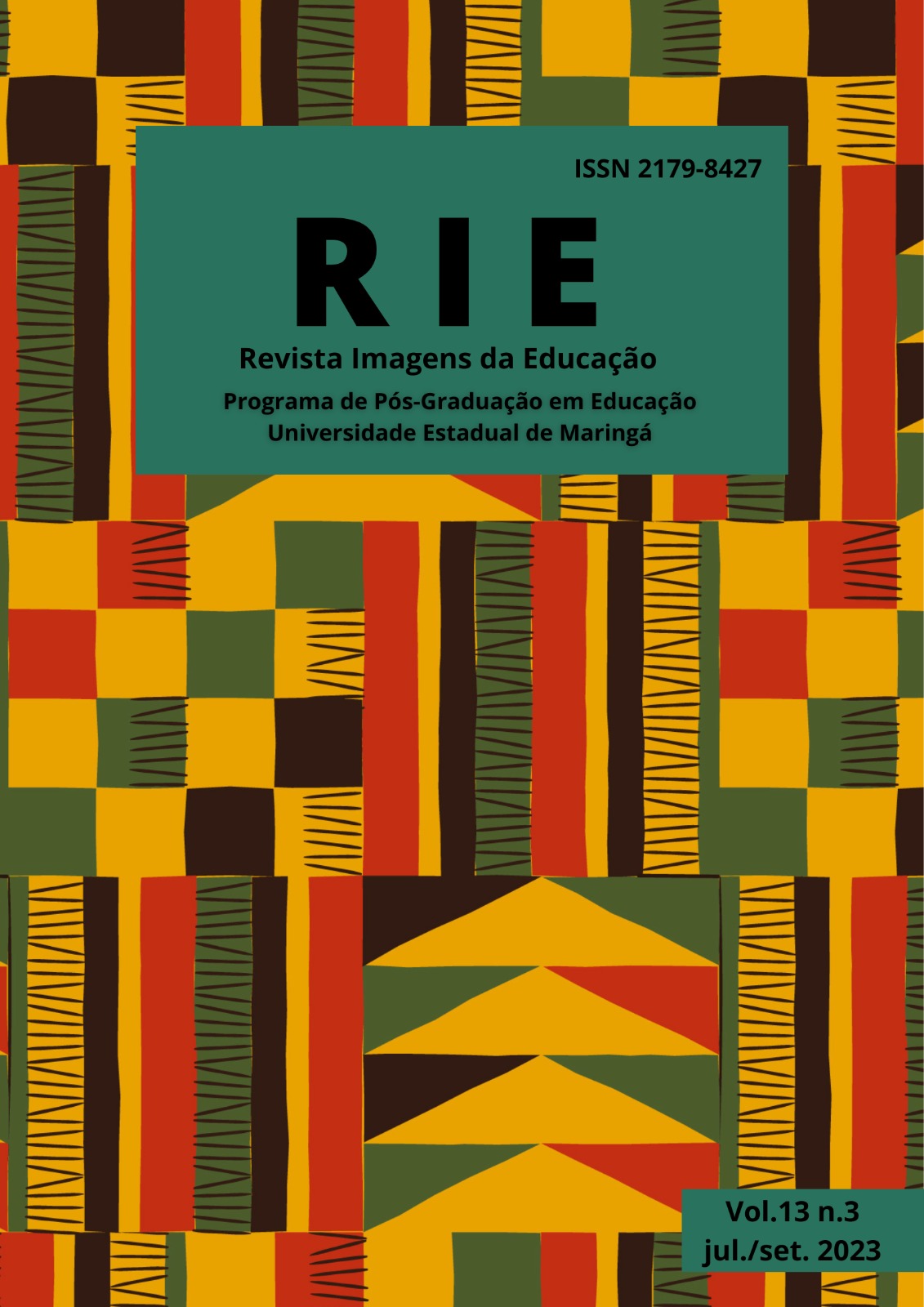CURRICULAR EXPERIMENTATION
THE DARING TO SINGULARIZE
Abstract
For Guattari, one of the main characteristics of production in capitalist society is the attempt to block singularization processes and establish individualization based on two devices: social subjection and machinic servitude. However, it is possible to develop unique modes of subjectivation, which affirm other sensitivities, other relationships, other creative movements. In life-affirming movements, this text presents the possibility of creating mutant existential virtualities to engender curricular experiments that assert themselves between lives and machinic desires. Despite the two domains of subjectivity, how is the process of experimentation and curriculum creation confirmed? How can we create possibilities in the curricular field that establish the daring to singularize via molecular revolutions? The article uses cartography, following the immanent lines of conversation networks, based on educational practices and non-dogmatic thoughts for teacher training, using artistic signs from cinema, literature, photography, etc. It is necessary to experiment - among ethical, aesthetic and political revolutionary machines - the daring to singularize in assemblages that create and proliferate possible to effect other curricula with ways of thinking and inventing cultures, lives, worlds and politics.
Downloads
References
Carvalho, J. M. (2019). Macro/Micropolítica, cotidiano escolar e constituição de um corpo coletivo em devir. Revista Educação Temática Digital, (21)1, 47-62.
Delboni, T. M. Z. G. F., & Melo, C. P. (2022) Os signos artísticos do cinema movimentando sentidos outros de currículos e docências. In J. M. Carvalho, S. K. Silva, & T. M. Z. G. F. Delboni (Org.), Currículos e artistagens: Política, ética e estética para uma educação inventiva (pp. 313-328). Curitiba: CRV.
Deleuze, G., & Guattari, F. (1992). Conversações. São Paulo: Ed. 34.
Deleuze, G., & Guattari, F. (1995). Mil platôs: Capitalismo e esquizofrenia – volume 1 (A. Guerra Neto, & C. P. Costa, Trad.). São Paulo: Ed. 34.
Deleuze, G., & Guattari, F. (2012). Mil platôs: Capitalismo e esquizofrenia – volume 4 (S. Rolnik, Trad.) São Paulo: Ed. 34.
Deleuze, G., & Guattari, F. (1997). Mil platôs: Capitalismo e esquizofrenia – volume 5 (P. P. Pelbart, & J. Caiafa, Trad.). São Paulo: Ed. 34.
Guattari, F. (1981). Revolução molecular: Pulsações políticas do desejo. São Paulo: Editora Brasiliense.
Guattari, F. (1992). Caosmose: Um novo paradigma estético. São Paulo: Ed. 34.
Guattari, F., & Rolnik, S. (2005). Micropolítica: Cartografias do desejo. Petrópolis: Vozes.
Lazzarato, M. (2017). O governo do homem endividado. São Paulo: n-1 edições.
Lazzarato, M. (2014). Signos, máquinas, subjetividades. São Paulo: edições Sesc; São Paulo; n-1 edições.
Marino, M. A., & Viel, J. (2017). Apresentação. In A. Negri, & F. Guattari, As verdades nômades: Por novos espaços de liberdade (p. xiii). São Paulo: Autonomia Literária e Editora Politeia.
Pelbart, P. P. (2019). Ensaios do assombro. São Paulo: n-1 edições.
Rolnik, S. (2005). Apresentação. In F. Guattari, & S. Rolnik, Micropolítica: Cartografias do desejo (p. 11-14). Petrópolis: Vozes.
Werneck, H. N. P.; & Silva, S. K. (2022). Composições em matilha: Potência coletiva que produz resistências e cria movimentos inventivos curriculares. Rio de Janeiro: Encontrografia.
Copyright (c) 2023 Imagens da Educação

This work is licensed under a Creative Commons Attribution-NonCommercial-NoDerivatives 4.0 International License.
DECLARATION OF ORIGINALITY AND CESSATION OF COPYRIGHT
I Declare that current article is original and has not been submitted for publication, in part or in whole, to any other national or international journal. I also declare that once published in the Imagens da Educação, a publication of the IES (UEM, UEL, UFSM, Univali, Unioeste and UEPG), it will not be submitted by me or by any co-author to any other journal. In my name and in the name of co-authors, I shall cede the copyright of the above mentioned article to the Universidade Estadual de Maringá and I declare that I know that the non-observance of this norm may make me liable for the penalties contemplated in the Law for the Protection of Authors' Rights (Act 9609 of the 19th February 1998).















1.png)

